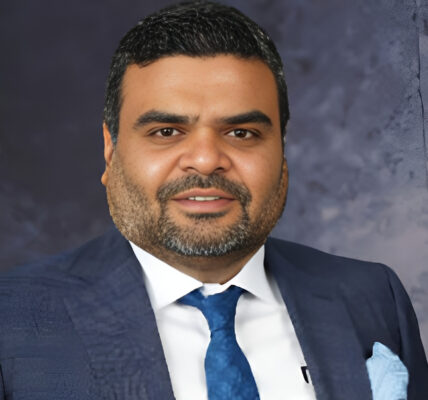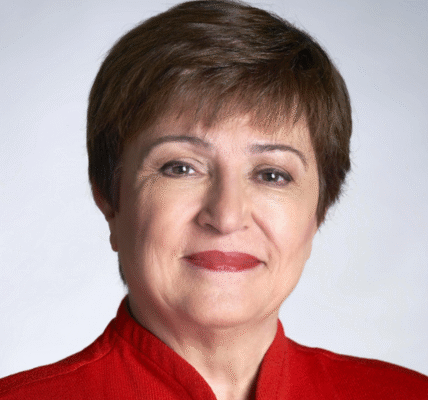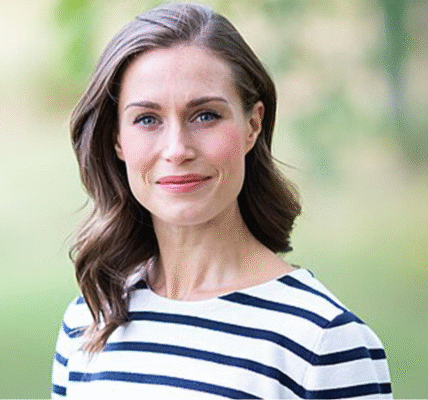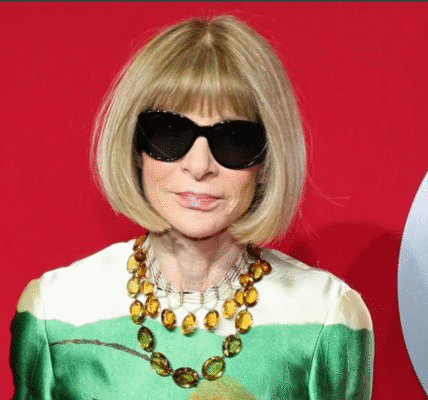Ulf Kristersson Biography: Sweden’s Prime Minister and Moderate Party Leader
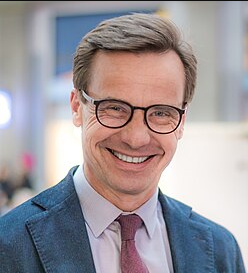
Introduction: Sweden’s Pragmatic Leader
Ulf Kristersson leads Sweden as Prime Minister and serves as the Moderate Party leader. Moreover, he shapes policies on the economy, security, and immigration. Over the years, he has built a reputation for pragmatic governance.
Early Life and Education
Ulf Hjalmar Ed Kristersson was born on December 29, 1963, in Lund, Sweden. He grew up in Torshälla, a small town known for its tight-knit community. Furthermore, his family emphasized education and civic engagement.
He studied economics at Uppsala University. During this time, he joined the Moderate Youth League. There, he demonstrated leadership skills and a talent for political strategy. Consequently, he gained early recognition in Swedish politics.
Entry into Politics
Kristersson entered the Swedish Riksdag in 1991. Since then, he has gained recognition for clear communication and disciplined policymaking. As a result, he quickly became a key figure in his party.
Ministerial Role: Social Insurance
From 2010 to 2014, he served as Social Insurance Minister under Prime Minister Fredrik Reinfeldt. During this period, he implemented reforms in welfare, healthcare, and employment policies. Additionally, he focused on improving efficiency and public trust in social programs.
Leadership of the Moderate Party
In 2017, Kristersson became the leader of the Moderate Party. Consequently, he shifted the party’s focus toward law, order, and integration reforms. Moreover, he strengthened the party’s image as pragmatic and policy-driven.
Prime Minister of Sweden
In October 2022, Kristersson became Sweden’s 35th Prime Minister. He formed a government supported by right-leaning parties. Therefore, his administration emphasizes security, fiscal responsibility, and public trust in institutions.
Leadership Style
Kristersson leads with analysis and discipline. Additionally, he consults experts, reviews data, and makes decisions systematically. Critics describe him as cautious, however, supporters value his consistency and reliability.
Moreover, his calm and clear communication reinforces public confidence.
Key Policies and Achievements
Kristersson has prioritized several initiatives:
- Defense Partnerships: He strengthened Sweden’s defense, including NATO collaboration.
- Welfare and Healthcare: He reformed systems to improve efficiency and services.
- Immigration and Integration: He implemented stricter policies for social cohesion.
- Economic Growth: He promoted innovation and global competitiveness.
Together, these measures aim to restore public trust and ensure long-term national security.
Personal Life
Kristersson is married to Birgitta Ed, and they have three daughters. Although he keeps his family life private, it reflects stability. Outside politics, he enjoys running and photography. Moreover, he values work-life balance.
Legacy and Vision
Kristersson represents a new direction in Swedish politics. He blends conservative economic policies with moderate social reforms. Furthermore, his focus on security, welfare, and economic growth positions Sweden for long-term stability.
Conclusion
Ulf Kristersson shapes modern Sweden through pragmatic leadership. From welfare reforms to national security initiatives, he influences domestic and international policies. Therefore, his role as Prime Minister demonstrates a balance of strategy, vision, and action.

